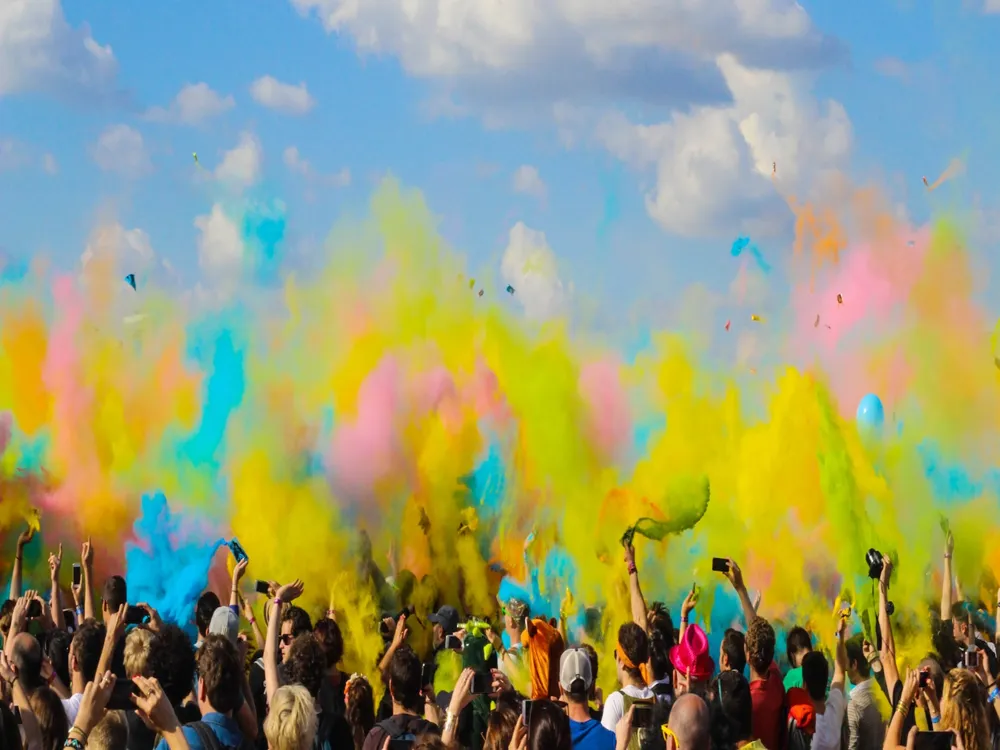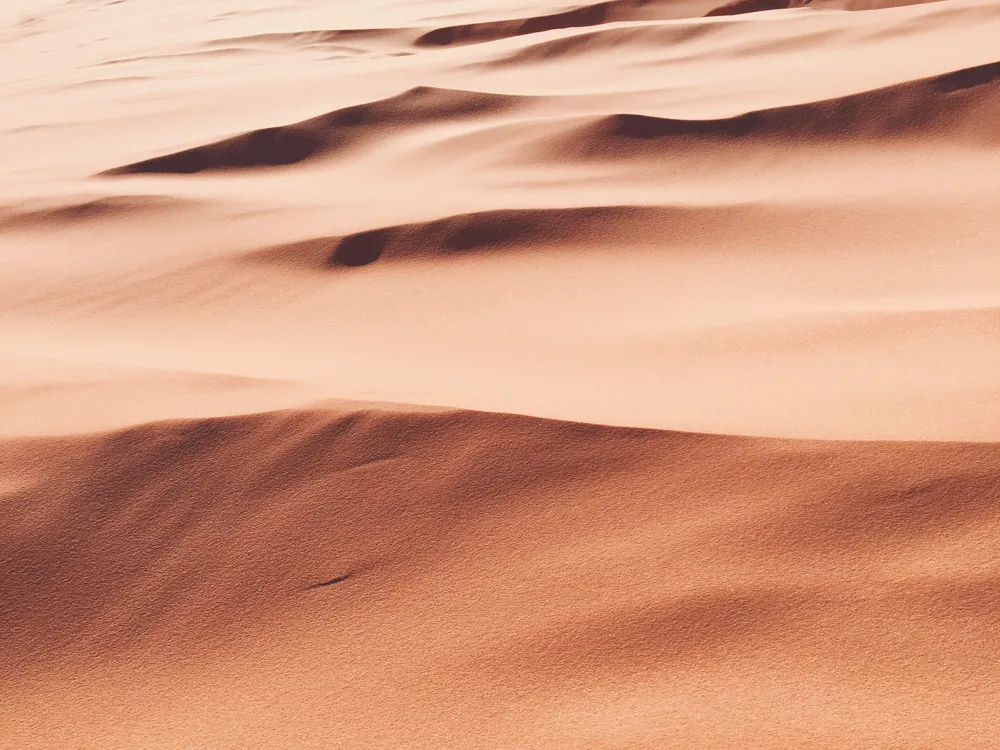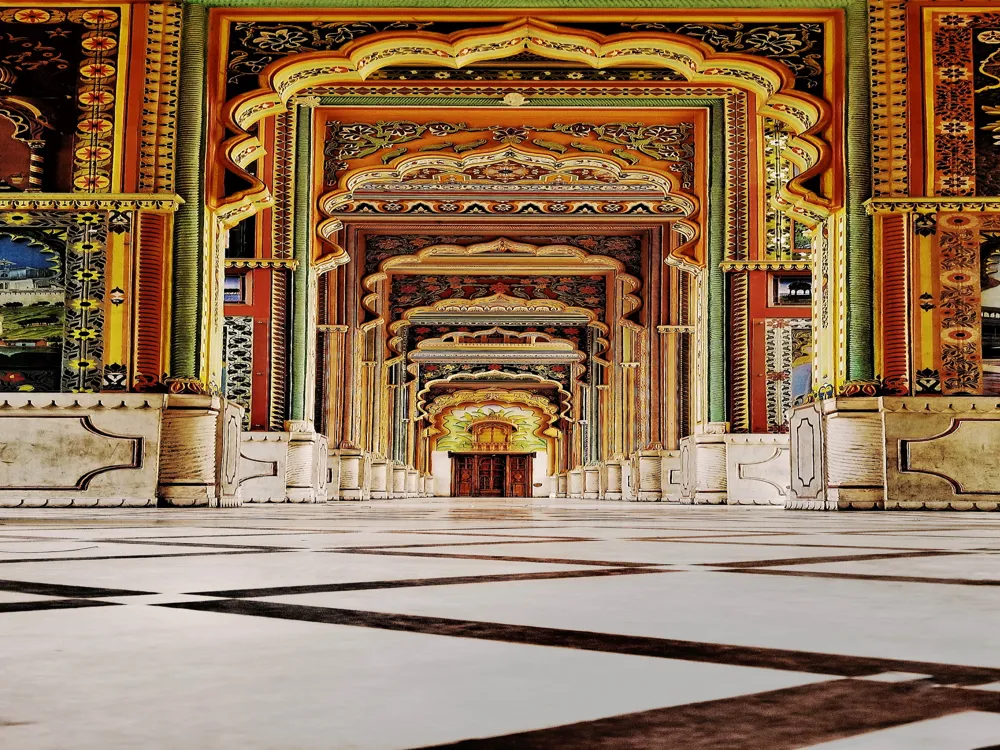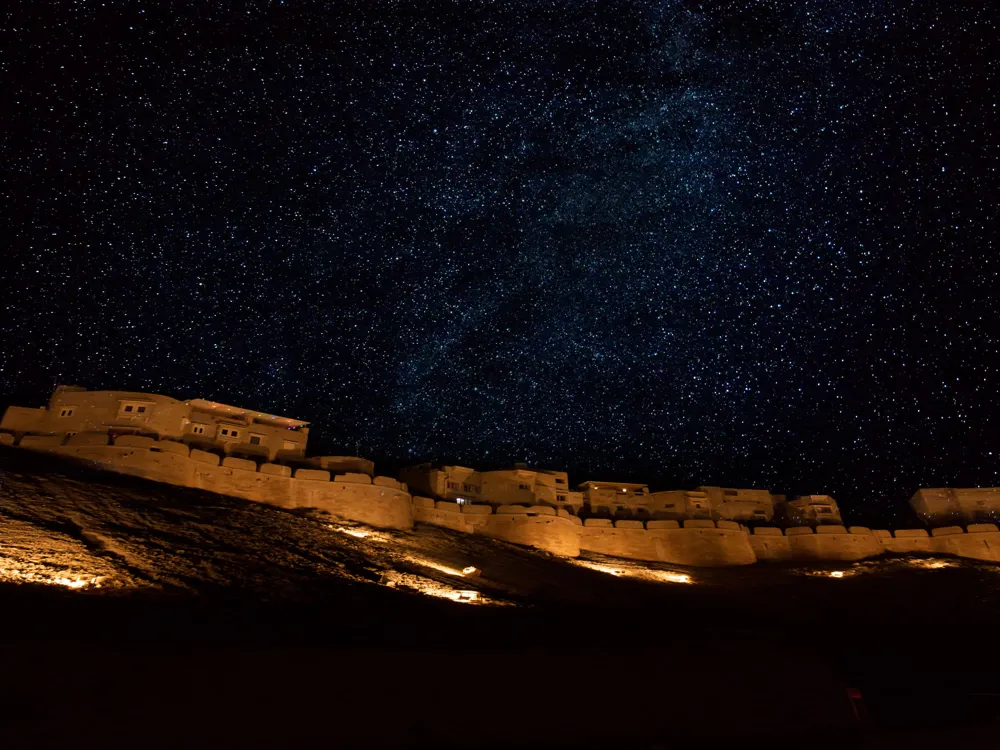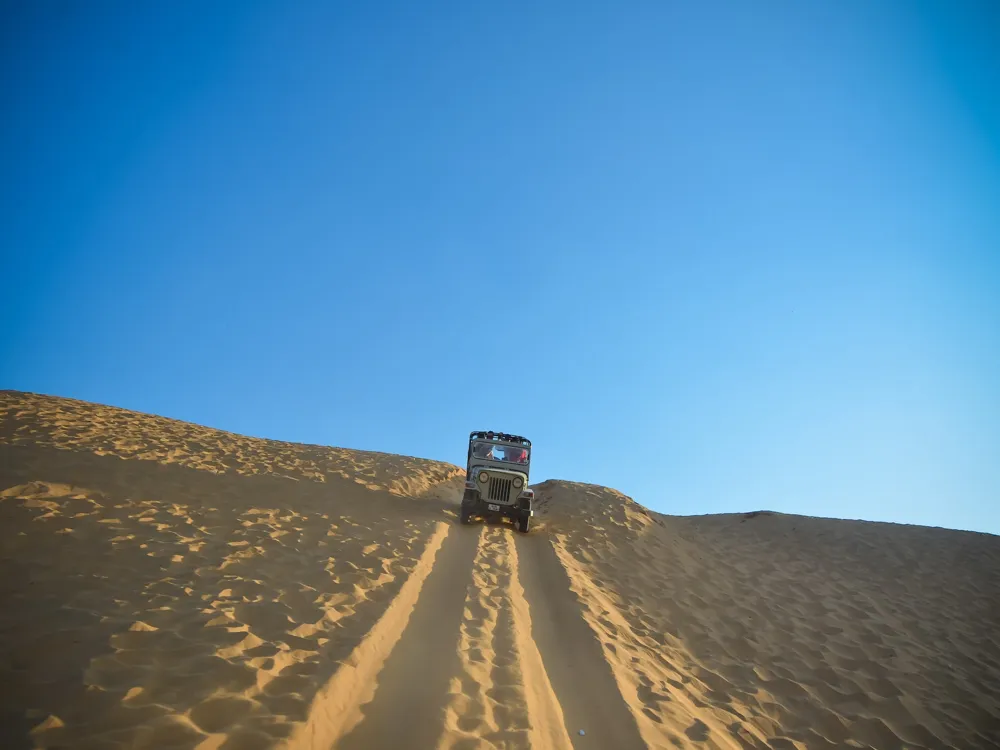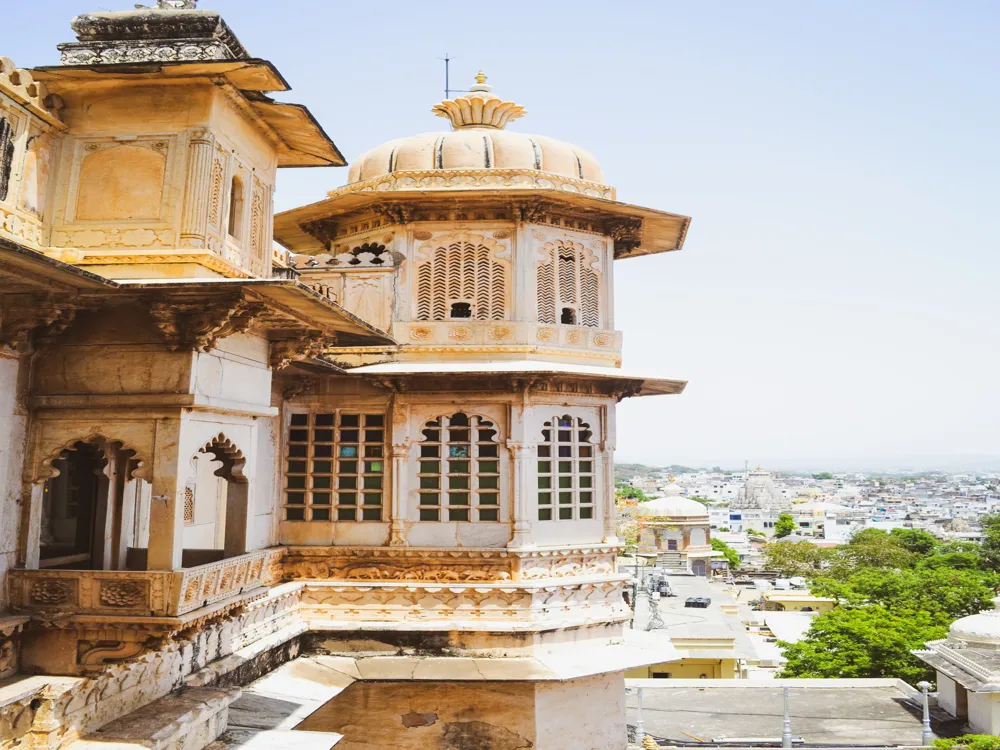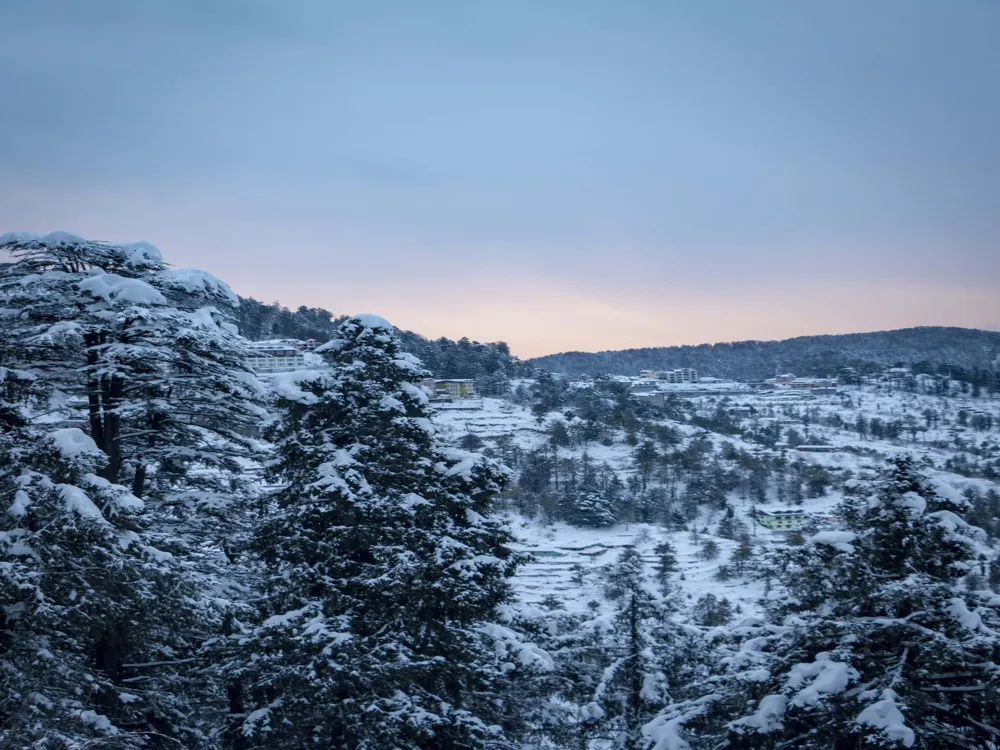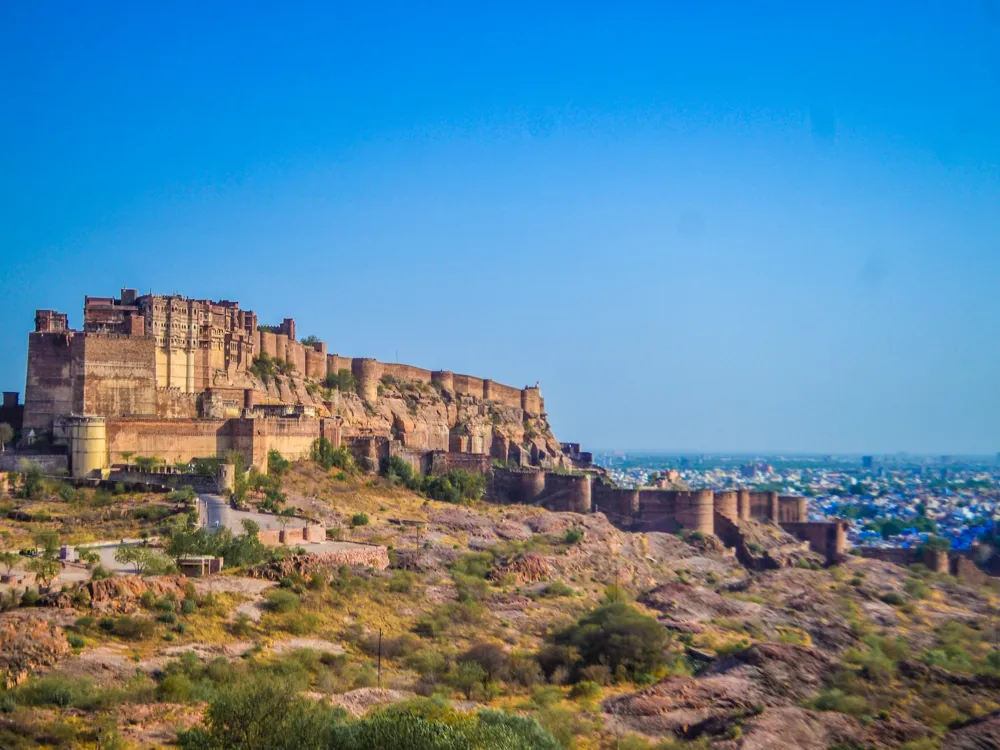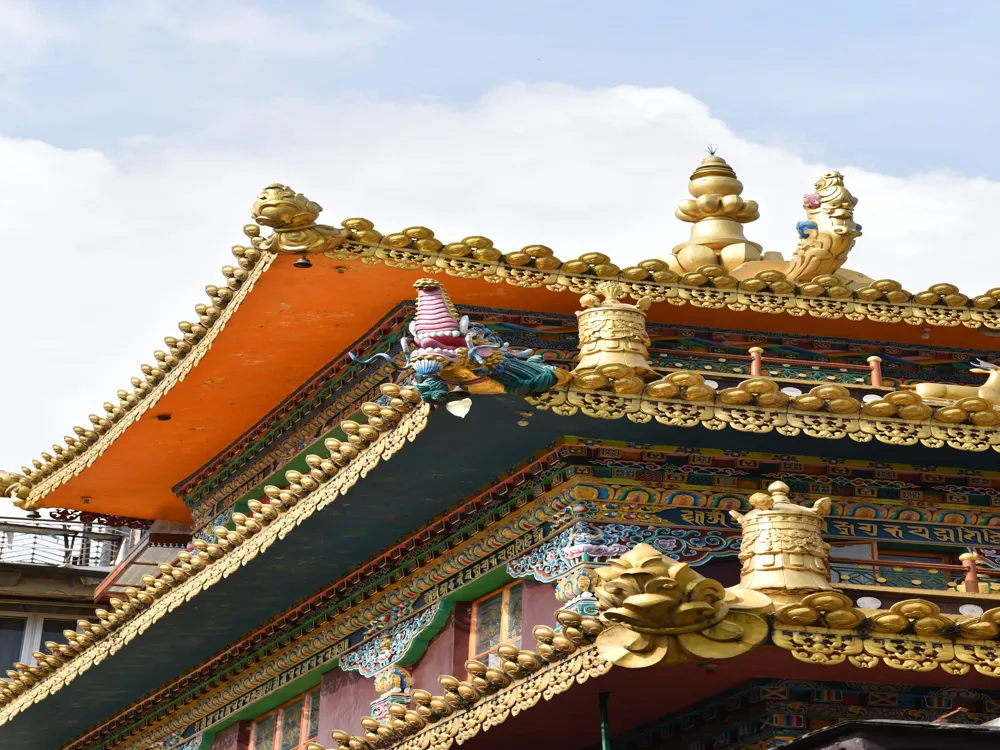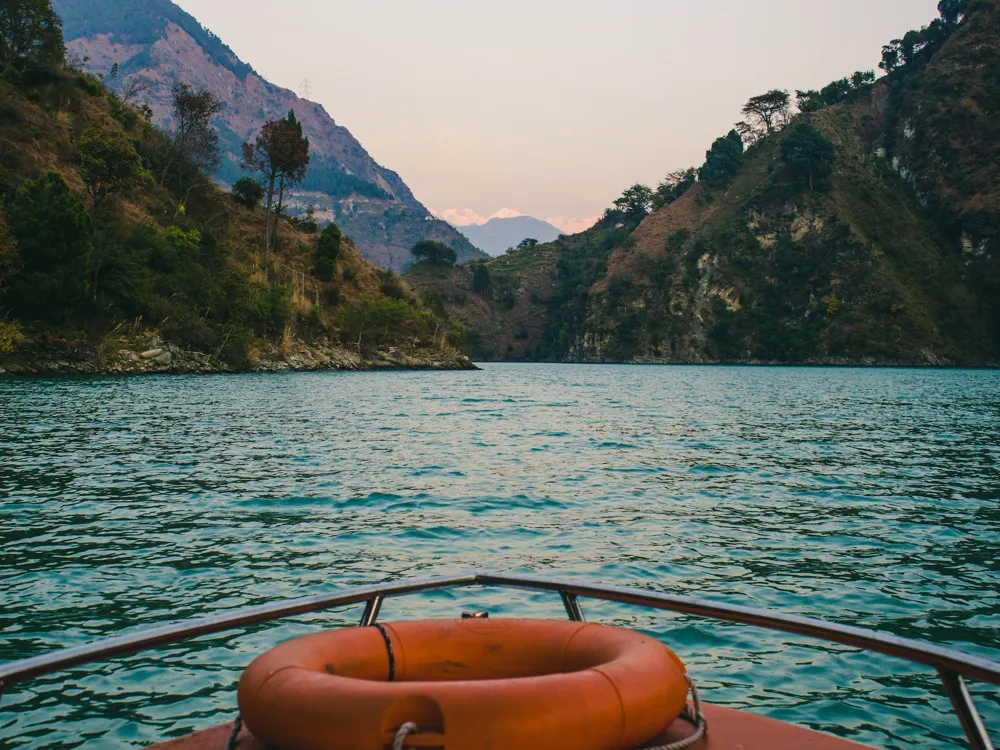Bikaner, a vibrant desert city located in the heart of Rajasthan, India, stands as a beacon of rich history and cultural heritage. Established in 1488 AD by Rao Bika Ji, a Rajput prince, Bikaner has since evolved into a city that beautifully blends ancient grandeur with modern progress. Its landscape is dominated by the vast Thar Desert, offering a picturesque backdrop to its stunning architecture.
The city's history is deeply interwoven with tales of valor, battles, and royalty, making it a fascinating destination for history buffs and casual tourists alike. Bikaner is renowned for its magnificent palaces, forts, and temples, each narrating a story of its glorious past. The Junagarh Fort, a prime example of this, stands as a testament to the city's historical and architectural significance. Another hallmark of Bikaner is its vibrant marketplaces, offering an array of traditional handicrafts, exquisite fabrics, and the famous Bikaneri Bhujia.
Moreover, Bikaner plays host to several cultural festivals that display the rich traditions of Rajasthan, including the famous Camel Festival, which attracts visitors from across the globe. The city’s cuisine is another aspect that draws people to its heart, with a variety of traditional dishes that are a treat to the taste buds.
Visitors to Bikaner are also treated to a unique wildlife experience at the Gajner Wildlife Sanctuary, which houses various species of flora and fauna. The city’s close connection with nature is evident in its serene landscapes and diverse ecosystems. The warmth and hospitality of the people of Bikaner make every visit memorable, offering a glimpse into the true essence of Rajasthani culture.
The architectural grandeur of Bikaner is a harmonious blend of Rajput, Mughal, and European styles, which has evolved over centuries. The city's buildings are predominantly constructed from red and yellow sandstone, which adds to their distinct aesthetic appeal. The intricate jharokhas (overhanging enclosed balconies), jaalis (latticed screens), and chhatris (elevated, dome-shaped pavilions) are characteristic features of Bikaner's architecture.
Junagarh Fort, the crown jewel of Bikaner, stands as a magnificent example of Rajput architecture. Built in 1594 by Raja Rai Singh, the fort is an imposing structure, with walls that have withstood the test of time and war. Inside, the fort houses several palaces and temples, each adorned with intricate carvings, beautiful paintings, and exquisite inlays.
The Laxmi Niwas Palace, another architectural marvel, showcases a blend of Rajput and European styles. Designed by British architect Sir Samuel Swinton Jacob, this palace is a masterpiece of craftsmanship, with its detailed filigree work and elaborate frescoes.
Bikaner’s temples, such as the Bhandasar Jain Temple and the Karni Mata Temple, also display intricate architectural designs and are revered for their religious significance. The use of marble and delicate carvings in these temples leaves visitors in awe of their beauty and craftsmanship.
Furthermore, the Havelis (mansions) of Bikaner, with their sprawling courtyards and elaborate facades, reflect the opulence and lifestyle of the Marwari merchants. These Havelis are not just residential buildings but are pieces of art, showcasing the rich cultural and artistic heritage of Bikaner.
The ideal time to visit Bikaner is during the winter months, from October to March, when the weather is pleasant, making it comfortable to explore the city and its attractions.
Bikaner is well-connected through local transport options like auto-rickshaws, taxis, and buses. It is advisable to negotiate the fare in advance when using auto-rickshaws or taxis.
The city offers a range of accommodation options, from luxury hotels to budget stays. Many heritage properties have been converted into hotels, offering a unique experience.
When visiting temples and religious sites, it's important to dress modestly and remove footwear. Respecting local customs and traditions is key to enjoying an immersive experience.
Overview of Bikaner, Rajasthan
Architecture of Bikaner
Tips When Visiting Bikaner
Best Time to Visit
Local Transportation
Accommodation
Cultural Etiquette
City Shopping
Bikaner
Rajasthan
₹ 15,250 onwards
View bikaner Packages
Bikaner Travel Packages
View All Packages For Bikaner
Top Hotel Collections for Bikaner

Private Pool

Luxury Hotels

5-Star Hotels

Pet Friendly
Top Hotels Near Bikaner
Other Top Ranking Places In Bikaner
View All Places To Visit In bikaner
View bikaner Packages
Bikaner Travel Packages
View All Packages For Bikaner
Top Hotel Collections for Bikaner

Private Pool

Luxury Hotels

5-Star Hotels

Pet Friendly



